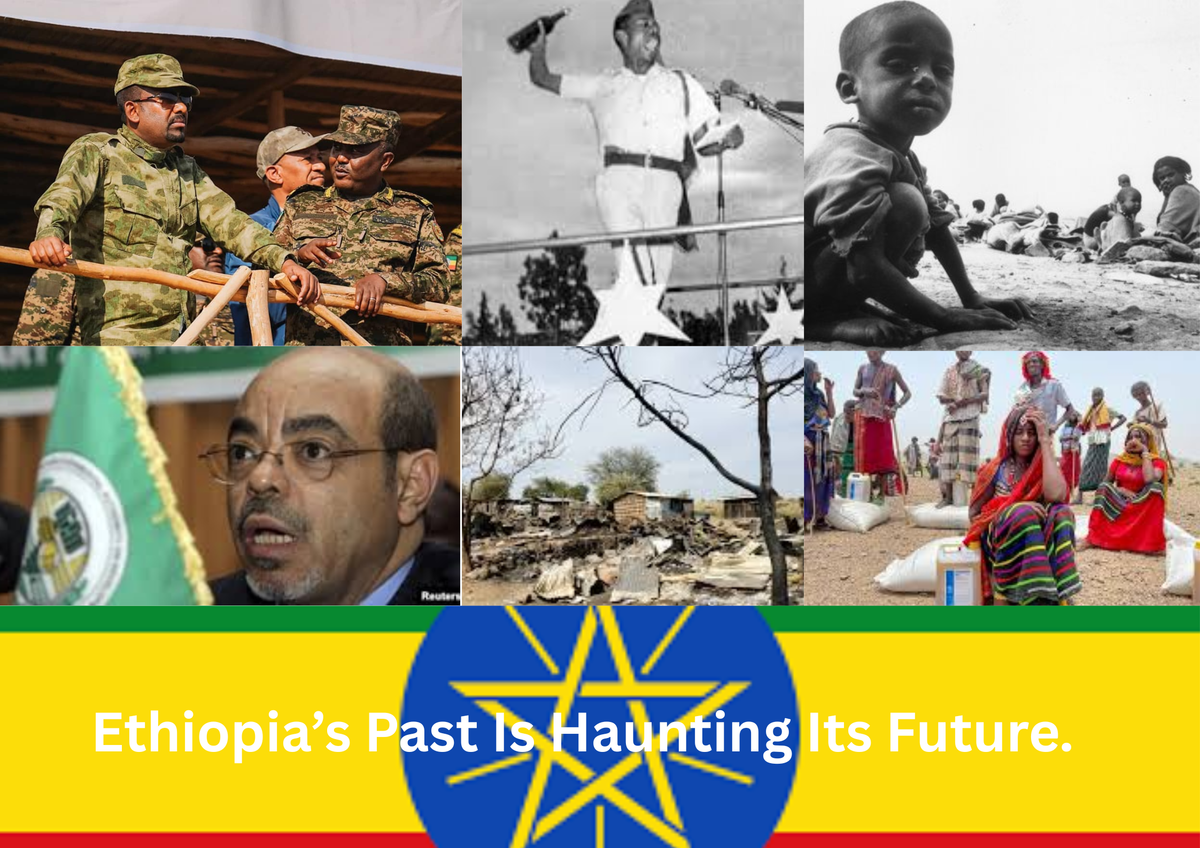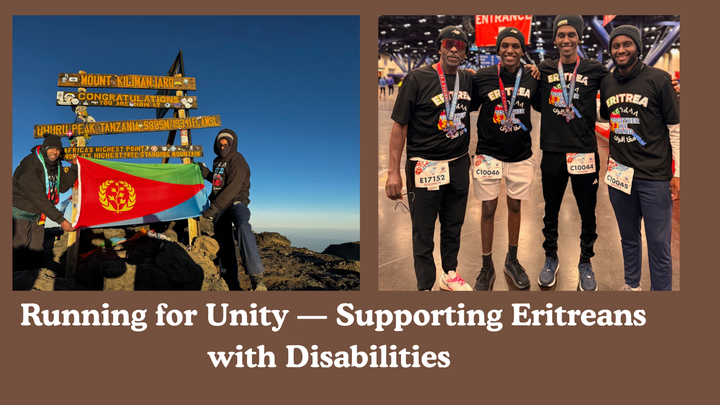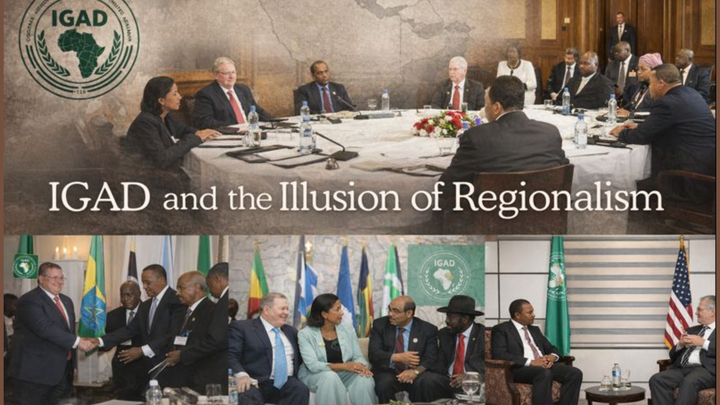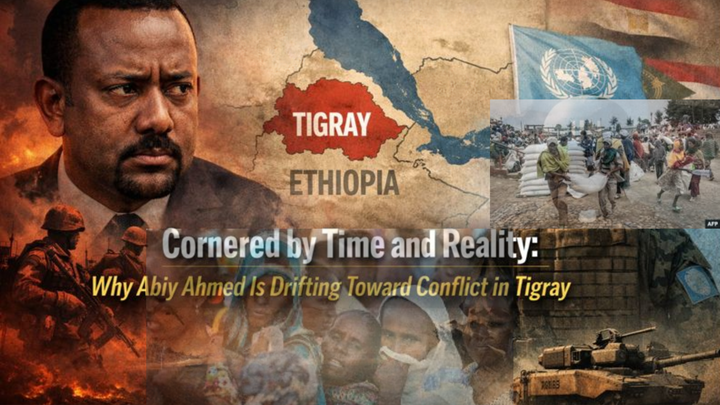The Ghosts of Nakfa: Ethiopia’s Dangerous Diversion and the Specter of War
Ethiopia’s Prime Minister flirts with a perilous past. His threat against Eritrea echoes the Derg’s deadly miscalculations and risks plunging the Horn into chaos.

By Amanuel Biedemariam | NefasitPost 10/28/2025
When Prime Minister Abiy Ahmed addressed the Ethiopian Parliament, his words reverberated far beyond Addis Ababa. In a moment that chilled the Horn of Africa, he framed a demographic boast as a veiled threat: Ethiopia, he said, adds “one Eritrea-sized population every year.” Then, with unnerving confidence, he warned that while a peaceful handover of Eritrean land was preferable, “if not, we know how it will end — and it will not take us thirty years this time.” The message was unmistakable: war, once again, was an acceptable path.
This is not a border issue. It is a declaration that challenges the very essence of Eritrea’s sovereignty and the foundation of the 2018 peace accord. By asserting that Eritrea’s independence—recognized by the world for over three decades—was “never agreed to by Ethiopians,” Abiy Ahmed has crossed from diplomacy into the realm of annexationist ambition. His words summon the ghosts of Ethiopia’s past—haunted echoes of regimes that made the same fatal miscalculations.
The irony is both tragic and familiar. In the 1970s and 80s, Mengistu Hailemariam’s Marxist Derg believed it could subdue Eritrea through brute force—sending waves of soldiers to die against the fortified mountains of Nakfa. That belief buried a generation of Ethiopians and left behind a trail of trauma and ruin. Decades later, the TPLF-led government, unable to accept Eritrea’s independence, pursued hostility masked as diplomacy, culminating in the devastating 1998–2000 border war that achieved nothing but more graves.
Now Abiy Ahmed appears poised to repeat their mistakes. To understand his belligerence, one must look inward—to a collapsing Ethiopia. The country is in the throes of economic despair, drowning in debt, its currency plummeting. The federation is fraying from within, consumed by wars in Tigray, Amhara, and Oromia. Ethnic mistrust festers across every region. Faced with these unraveling crises, Abiy’s fixation on Eritrea serves as a calculated diversion—a “wag the dog” strategy to redirect rage outward and forge a temporary unity through imagined enemies.
By invoking global conflicts like Ukraine and Gaza, Abiy signals to Ethiopians that aggression has no cost in today’s world, that might makes right. But this cynical calculus is suicidal. A war with Eritrea would not revive Ethiopia—it would disintegrate it. It would unleash a chain reaction of rebellion and bloodshed within its own borders, a civil implosion disguised as foreign conquest. What Abiy presents as a vision of national revival may instead become the final act in Ethiopia’s long imperial tragedy.
The international community must not mistake this for a routine border flare-up. When a head of state threatens to erase another sovereign nation and nullify its independence, it is no longer a “bilateral issue.” It is an assault on the international order itself—a challenge to the principles that have preserved peace since 1945. The cost of silence, as history repeatedly shows, is paid in blood.
Eritrea, however, does not respond to provocation with panic. Its strategy, tempered by survival, remains rooted in discipline and foresight. The mountains of Nakfa, which once devoured armies, still stand as silent sentinels—memorials to those who mistook Eritrea’s resilience for weakness. Asmara’s response, when it comes, will be deliberate and decisive, not loud. For Eritrea’s sovereignty was not gifted; it was earned through sacrifice—and those who forget that history are doomed to relive its consequences.
Abiy Ahmed’s course does not lead to empire, but to ruin—shared, senseless, and inevitable. The ghosts of Nakfa are stirring again, not in vengeance, but in warning. They wait for those who would march toward them, repeating the lies that once filled Ethiopian trenches with sons who never came home. The world must recognize this for what it is: not a quest for justice or security, but a desperate diversion from collapse. The choice before Ethiopia is simple—heed history’s warnings or be consumed by them.
Support Independent Eritrean Voices
If you value in-depth Eritrean perspectives and analysis rarely seen in mainstream media, support our work.
📬 Subscribe to NefasitPost for exclusive articles, editorials, and multimedia updates from across the Horn of Africa.
Your support helps amplify Eritrean stories, culture, and truth — directly from those who live it.
👉 Subscribe now and share: www.NefasitPost.com
Sponsored: Eritrea Business Directory
🟢 Connecting Eritreans Worldwide
Discover, list, and support Eritrean businesses, professionals, and organizations across the globe. Whether you run a café in Asmara, a logistics firm in Dubai, or a salon in Washington, D.C., the Eritrea Business Directory helps your business be seen — by your community and the world.
✨ Join today at EritreaBusinessDirectory.com
and grow your brand with pride.
Commerce. Culture. Connection.




Comments ()